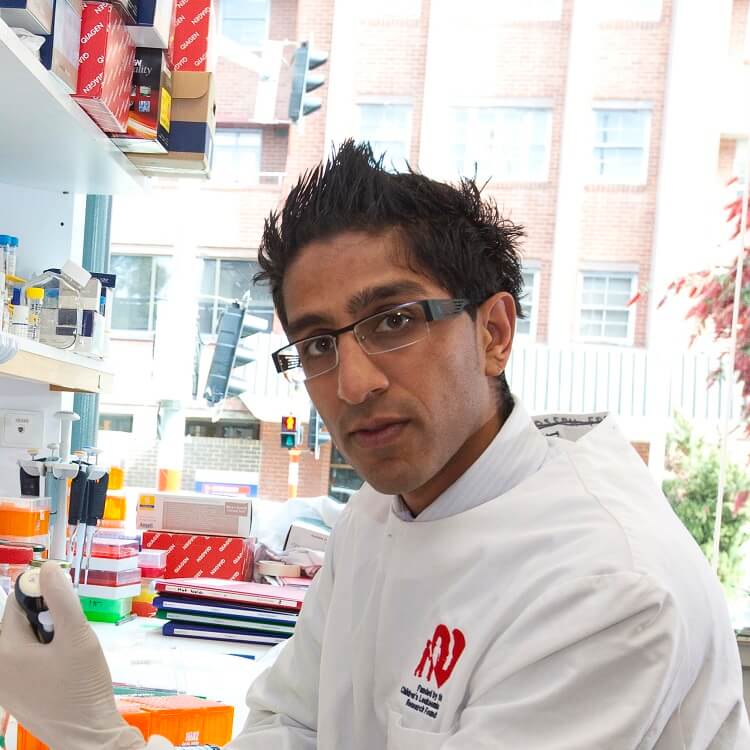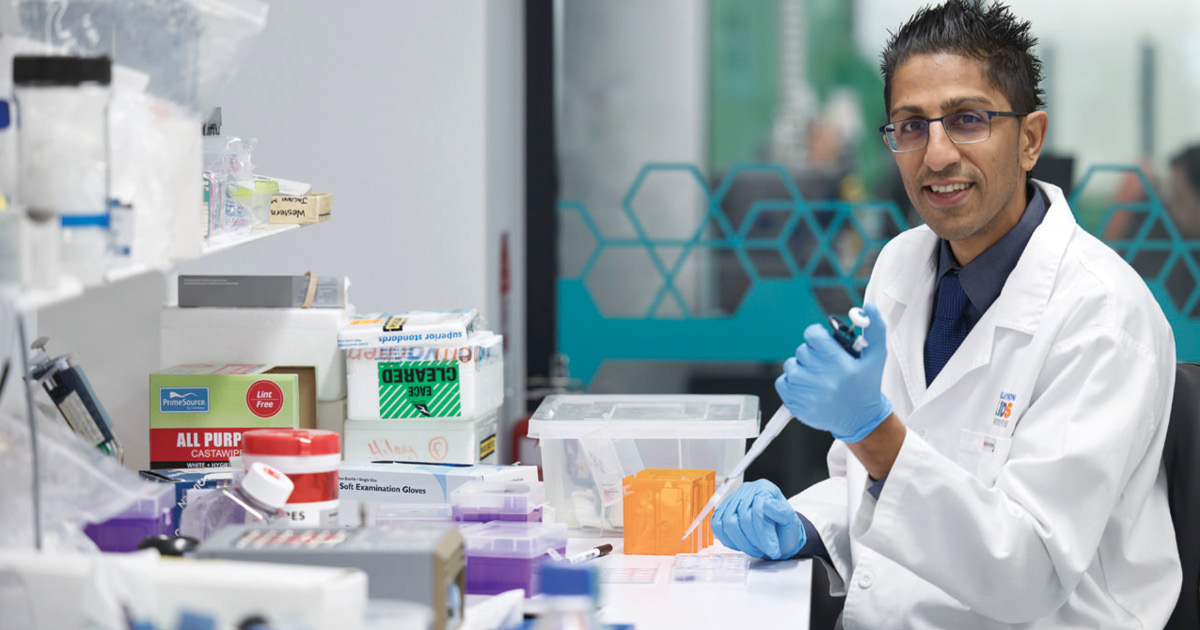Search
Showing results for "rishi kotecha"
Research
Rare childhood cancers—an increasing entity requiring the need for global consensus and collaborationRare childhood cancers have not benefited to the same extent from the gains that have been made for their frequently occurring counterparts.
Research
Invasive fungal infections in children with acute lymphoblastic leukaemia: Results from four Australian centres, 2003-2013Invasive fungal infections are more common in children with high-risk acute lymphoblastic leukaemia and in relapsed disease
Research
Pediatric meningioma: Current approaches and future directionWith improvement in leukemia therapy, central nervous system (CNS) tumors are the leading cause of cancer mortality in children and the most expensive...
Research
Precision-guided treatment in high-risk pediatric cancersRecent research showed that precision medicine can identify new treatment strategies for patients with childhood cancers. However, it is unclear which patients will benefit most from precision-guided treatment.

News & Events
New clinical trial to improve outcomes for babies with leukaemiaThe Australian arm of an international clinical trial looking at improved treatments for young babies with leukaemia has been awarded funding from the MRFF.
Research
Boosting the influenza vaccine schedule in children with cancer: a prospective open-label studyCurrent immunization guidelines recommend one dose of influenza vaccine for children aged ≥9 years and two doses for younger or vaccine-naïve children. However, children receiving chemotherapy have an attenuated immune response. We performed a prospective open-label study in children undergoing treatment for cancer at Perth Children's Hospital, Western Australia, to examine the safety and efficacy of a boosted influenza schedule.

News & Events
Pioneering paediatric oncologist receives top cancer research awardAssociate Professor Rishi Kotecha, Co-Head of Leukaemia Translational Research at The Kids Research Institute Australia Cancer Centre and Consultant Paediatric Oncologist at Perth Children's Hospital, has been named Cancer Council WA’s 2024 Cancer Researcher of the Year.

A pilot clinical study has found an immunotherapy drug can dramatically increase survival rates for babies with a rare form of leukaemia, paving the way for a major international clinical trial.
Research
COVID-19 vaccination in children and adolescents aged 5 years and older undergoing treatment for cancer and non-malignant haematological conditions: Australian and New Zealand Children’s Haematology/Oncology Group consensus statementThe Australian Technical Advisory Group on Immunisation and New Zealand Ministry of Health recommend all children aged ≥ 5 years receive either of the two mRNA COVID-19 vaccines: Comirnaty (Pfizer), available in both Australia and New Zealand, or Spikevax (Moderna), available in Australia only. Both vaccines are efficacious and safe in the general population, including children. Children and adolescents undergoing treatment for cancer and immunosuppressive therapy for non-malignant haematological conditions are particularly vulnerable, with an increased risk of severe or fatal COVID-19.
Research
Medulloblastoma Down Under 2013: a report from the third annual meeting of the International Medulloblastoma Working GroupMedulloblastoma is curable in approximately 70 % of patients. Over the past decade, progress in improving survival using conventional therapies has stalled...
